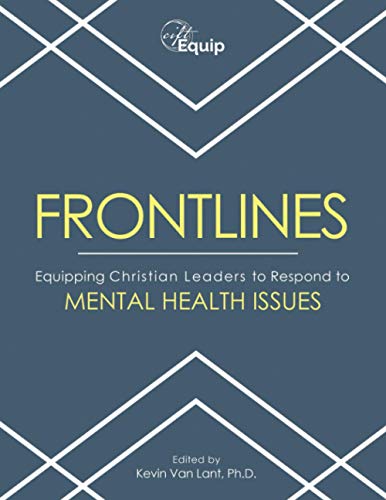Finding hope dealing with mental health issues in the context of a local church can be difficult. From over simplifying to over spiritualizing, the church has had a hard time offering answers or hope to those who deal with such complicated issues. So we are excited to spend some time discussing the complexities of mental health during The Gospel & Mental Health. We hope to destigmatize the subject in the church, help people realize how common mental heath crises are, and to walk the journey of mental heath with the family of God.
What is
the Gospel&
Mental Health?
Mental health is a growing concern in the United States, with one in five adults experiencing a mental illness in any given year. Common conditions include depression, anxiety, post-traumatic stress disorder (PTSD) bipolar, BPD, and more. The COVID-19 pandemic has also had a significant impact on mental health, with increased rates of stress, isolation, and trauma leading to a rise in mental health concerns. Despite the prevalence of mental illness, access to mental health services remains a challenge, with many individuals facing barriers to care such as lack of insurance coverage, stigma, and shortage of mental health professionals.
While the church is not trying to take the place of medical professionals, counselors, or psychological help, we do want to support those who are suffering, to come alongside people through community as a healthy and safe place for honesty and healing, and to provide resources to those who are lost. In all of this, we want to rely on Gospel-centered, Biblical wisdom.
Speaker
Dr. Kevin Van Lant
Kevin Van Lant is a licensed clinical psychologist who received his Ph.D. from Rosemead School of Psychology, Biola University. Dr. Van Lant serves as an Associate Professor and Program Director for the Pastoral Care and Counseling Program at Talbot School of Theology as well as the Marriage and Family Therapy program where he teaches courses in marriage counseling, psychopathology, pastoral counseling, and health psychology.
Dr. Van Lant speaks on a broad range of topics including finding meaning and purpose in pain and suffering, men’s issues, parenting, mental health and the church, marriage enrichment, general relationship issues and frequently consults with pastors and churches on issues of congregant and staff mental health.
Additional Resources
The purpose of this manual is to accompany in-person training that will equip pastors, lay leaders educators and parachurch leaders to assess and triage common mental health issues. Christian leaders and educators are often on the interpersonal frontlines of our current mental health crisis, and so are in need of more information on the care and triaging of those suffering from mental illness. This is particularly important because many of those in your care will typically consult with pastors, teachers and lay leaders before seeking care from a mental health professional. Furthermore, because more than 75% of all chronic mental illness manifests prior to age 24, pastors and lay leaders are in a unique position that allows them to intervene in the early stages of someone’s mental health journey, possibly mitigating future suffering.



